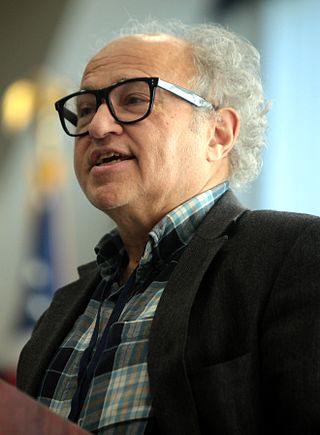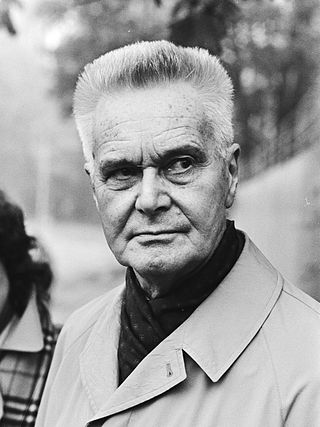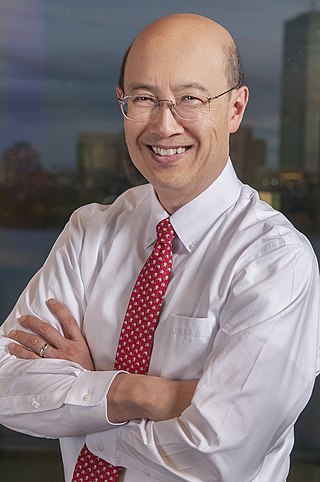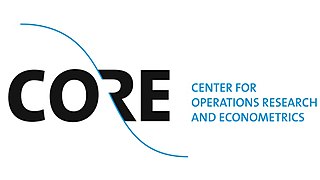Related Research Articles

David Director Friedman is an American economist, physicist, legal scholar, author, and anarcho-capitalist theorist. Although he studied chemistry and physics and not law or economics, he is known for his textbook writings on microeconomics and the libertarian theory of anarcho-capitalism, which is the subject of his most popular book, The Machinery of Freedom. Described by Walter Block as a "free-market anarchist" theorist, Friedman has also authored several other books and articles, including Price Theory: An Intermediate Text (1986), Law's Order: What Economics Has to Do with Law and Why It Matters (2000), Hidden Order: The Economics of Everyday Life (1996), and Future Imperfect (2008).

Milton Friedman was an American economist and statistician who received the 1976 Nobel Memorial Prize in Economic Sciences for his research on consumption analysis, monetary history and theory and the complexity of stabilization policy. With George Stigler and others, Friedman was among the intellectual leaders of the Chicago school of economics, a neoclassical school of economic thought associated with the work of the faculty at the University of Chicago that rejected Keynesianism in favor of monetarism until the mid-1970s, when it turned to new classical macroeconomics heavily based on the concept of rational expectations. Several students, young professors and academics who were recruited or mentored by Friedman at Chicago went on to become leading economists, including Gary Becker, Robert Fogel, Thomas Sowell and Robert Lucas Jr.

Jan Tinbergen was a Dutch economist who was awarded the first Nobel Memorial Prize in Economic Sciences in 1969, which he shared with Ragnar Frisch for having developed and applied dynamic models for the analysis of economic processes. He is widely considered to be one of the most influential economists of the 20th century and one of the founding fathers of econometrics.
Otto Eckstein was a German-American economist. He was a key developer and proponent of the theory of core inflation, which proposed that in determining accurate metrics of long run inflation, the transitory price changes of items subject to volatile pricing, such as food and energy, are to be excluded from computation.
Monetary economics is the branch of economics that studies the different theories of money: it provides a framework for analyzing money and considers its functions, and it considers how money can gain acceptance purely because of its convenience as a public good. The discipline has historically prefigured, and remains integrally linked to, macroeconomics. This branch also examines the effects of monetary systems, including regulation of money and associated financial institutions and international aspects.

Merton Howard Miller was an American economist, and the co-author of the Modigliani–Miller theorem (1958), which proposed the irrelevance of debt-equity structure. He shared the Nobel Memorial Prize in Economic Sciences in 1990, along with Harry Markowitz and William F. Sharpe. Miller spent most of his academic career at the University of Chicago's Booth School of Business.
The Chicago school of economics is a neoclassical school of economic thought associated with the work of the faculty at the University of Chicago, some of whom have constructed and popularized its principles. Milton Friedman and George Stigler are considered the leading scholars of the Chicago school.

George Joseph Stigler was an American economist. He was the 1982 laureate in Nobel Memorial Prize in Economic Sciences and is considered a key leader of the Chicago school of economics.

Wesley Clair Mitchell was an American economist known for his empirical work on business cycles and for guiding the National Bureau of Economic Research in its first decades.
Economic methodology is the study of methods, especially the scientific method, in relation to economics, including principles underlying economic reasoning. In contemporary English, 'methodology' may reference theoretical or systematic aspects of a method. Philosophy and economics also takes up methodology at the intersection of the two subjects.
Arnold Zellner was an American economist and statistician specializing in the fields of Bayesian probability and econometrics. Zellner contributed pioneering work in the field of Bayesian analysis and econometric modeling.

Leonid Hurwicz was a Polish-American economist and mathematician, known for his work in game theory and mechanism design. He originated the concept of incentive compatibility, and showed how desired outcomes can be achieved by using incentive compatible mechanism design. Hurwicz shared the 2007 Nobel Memorial Prize in Economic Sciences for his seminal work on mechanism design. Hurwicz was one of the oldest Nobel Laureates, having received the prize at the age of 90.

Eric Ghysels is a Belgian-American economist with interest in finance and time series econometrics, and in particular the fields of financial econometrics and financial technology. He is the Edward M. Bernstein Distinguished Professor of Economics at the University of North Carolina and a Professor of Finance at the Kenan-Flagler Business School. He is also the Faculty Research Director of the Rethinc.Labs at the Frank Hawkins Kenan Institute of Private Enterprise.
Phillip David Cagan was an American scholar and author. He was Professor of Economics Emeritus at Columbia University.
Henry Schultz was an American economist, statistician, and one of the founders of econometrics. Paul Samuelson named Schultz as one of the several "American saints in economics" born after 1860.
Shlomo Weber is an economics professor and president, New Economic School in Moscow, Russia; Academic Director of the Center for Study of Diversity and Social Interactions at NES; Robert H. and Nancy Dedman Trustee Professor of Economics Department of Economics, Southern Methodist University.
Marc Leon Nerlove is an American agricultural economist and econometrician and a distinguished university professor emeritus in agricultural and resource economics at the University of Maryland. He was awarded the John Bates Clark Medal from the American Economic Association (AEA) in 1969 and held appointments at eight different universities from 1958–2016. The Clark Medal is awarded to an economist under the age of 40 who “is judged to have made the most significant contribution to economic thought and knowledge”, and when the AEA appointed him as a distinguished fellow in 2012, they cited his development of widely used econometric methods across a range of subjects, including supply and demand, time series analysis, production functions, panel analysis, and family demography.

Andrew Wen-Chuan Lo is the Charles E. and Susan T. Harris Professor of Finance at the MIT Sloan School of Management. Lo is the author of many academic articles in finance and financial economics. He founded AlphaSimplex Group in 1999 and served as chairman and chief investment strategist until 2018 when he transitioned to his current role as chairman emeritus and senior advisor.

The Center for Operations Research and Econometrics (CORE) is an interdisciplinary research institute of the University of Louvain (UCLouvain) located in Louvain-la-Neuve, Belgium. Since 2010, it is part of the Louvain Institute of Data Analysis and Modeling in economics and statistics (LIDAM), along with the Institute for Economic and Social Research (IRES), Louvain Finance (LFIN) and the Institute of Statistics, Biostatistics and Actuarial Sciences (ISBA).
Johannes Hörner is a French-German economist and currently Alfred Cowles Professor of Economics at Yale University. His research focuses on microeconomics and game theory.
References
- 1 2 3 Faculty listing Archived 2006-08-11 at the Wayback Machine , University of Chicago Economics Department, retrieved 2010-01-07.
- ↑ Ebenstein, Lanny (2007). Milton Friedman: A Biography . Palgrave Macmillan. p. 89. ISBN 9780230603455.
- ↑ "Lester G. Telser". JSTOR.
- ↑ The Chicago School Archived 2010-02-04 at the Wayback Machine , History of Economic Thought web site, The New School, retrieved 2010-01-07.
- ↑ "Living the Legacy: Chicago Economics through the Years". YouTube . Archived from the original on 2021-12-21. Retrieved 2015-10-28.
- ↑ Lester Telser: Beyond conventions in economics. Oral History Center. 2018.
- ↑ Fellows of the Econometric Society as of July 2009 Archived December 10, 2008, at the Wayback Machine , retrieved 2010-01-07.
- ↑ ASA Fellows Archived 2020-04-09 at the Wayback Machine , retrieved 2010-01-07.
- ↑ University of Chicago Press, 1972, ISBN 978-0-226-79190-6.
- ↑ Macmillan, 1972, ISBN 978-0-333-13644-7; Aldine treatises in modern economics, 1972, ISBN 978-0-202-06043-9; Transaction, 2007, ISBN 978-0-202-30925-5.
- ↑ University of Chicago Press, 1987, ISBN 978-0-226-79191-3. University of Chicago Press, 1988, ISBN 978-0-226-79193-7.
- ↑ Cambridge University Press, 1987, ISBN 978-0-521-30619-5. Cambridge University Press, 2005, ISBN 978-0-521-02220-0.
- ↑ North-Holland, 1988, ISBN 978-0-444-01248-7.
- ↑ University of Michigan Press, 1997, ISBN 978-0-472-10866-4.
- ↑ Risk, 2000, ISBN 978-1-899332-92-2.
- ↑ Routledge, 2007, ISBN 978-0-415-70144-0; Taylor and Francis, 2009, ISBN 978-0-415-49365-9.